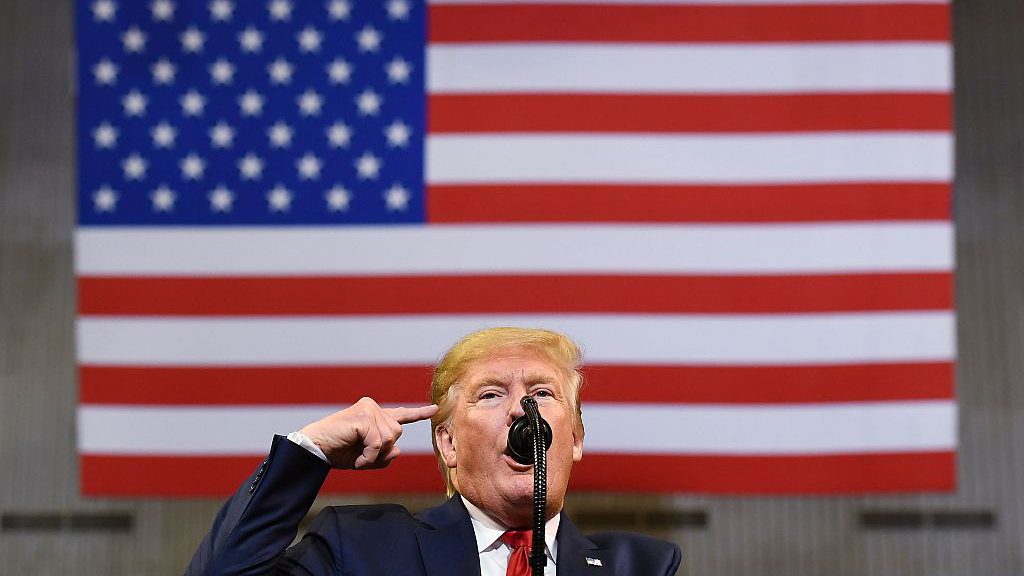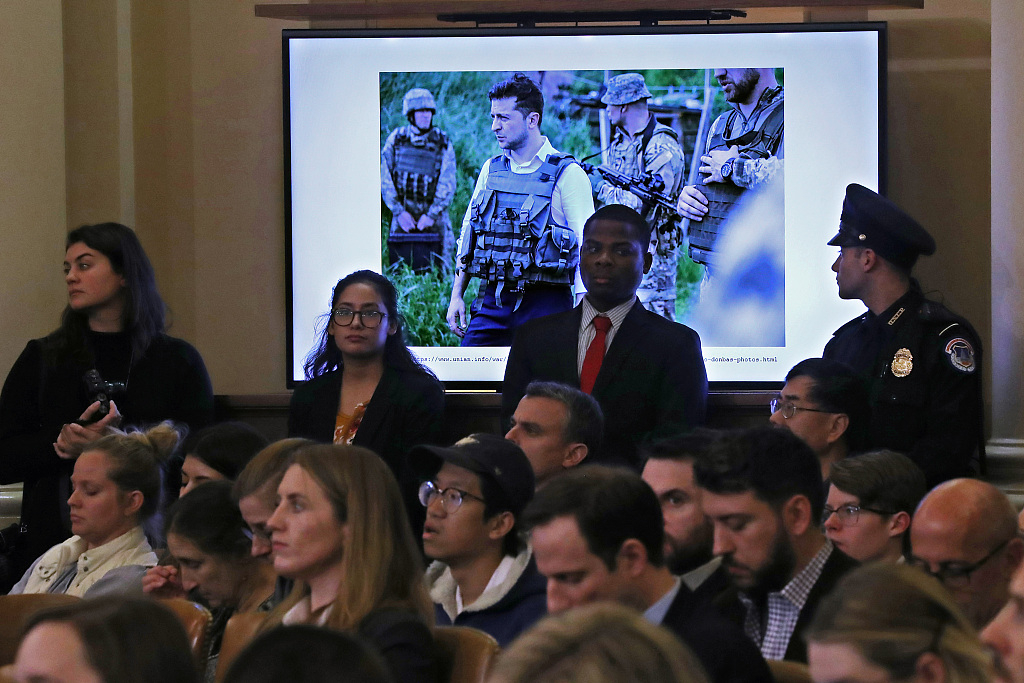22:52

Far from being an example of democracy in action, a U.S. commentator is suggesting that the impeachment hearings against American President Donald Trump have actually revealed the opposite.
Republican lawmakers have pushed back aggressively against the Democrat-led inquiry in the House of Representatives, exposing deep divisions in American society. Polls show public sentiment about impeachment breaking along partisan lines.
The House Intelligence Committee last Thursday concluded five days of public hearings looking into Trump's pressure campaign to get Ukraine to investigate Joe Biden, a leading contender for the Democratic presidential nomination in 2020, and his son Hunter, who had served on the board of Ukrainian gas company Burisma.
On CGTN's The Heat, three of the four panelists agreed that the case for impeachment was made conclusively though many of Trump's backers say what he did was entirely defensible.
Referring to the Republican response, Spencer Critchley, managing partner of Boots Road Group and who worked on communications for Barack Obama campaigns, said it was not an exaggeration to describe "what we are witnessing here as a breakdown in democracy itself."
For congressional Republicans, he said the facts against Trump don't matter, a breach of the "enlightenment consensus" on which the nation was founded – "the triumph of reason over beliefs, of facts over faith."
'High crimes'
"Some of what we are seeing now is a movement by people who actively reject the facts ... because they honestly believe that the truth can be whatever you want it to be if you believe it hard enough or you assert it hard enough," Critchley said. "And we see this in the tribalistic support for President Trump which has mystical dimensions, or the people who describe themselves as fundamentalist Christians and are supporting incredibly unchristian behavior.

Fiona Hill, the former top Russia expert on the National Security Council, arrives to testify during the House Intelligence Committee hearing as part of the impeachment inquiry into President Trump on Capitol Hill in Washington, November 21, 2019. /VCG Photo
Fiona Hill, the former top Russia expert on the National Security Council, arrives to testify during the House Intelligence Committee hearing as part of the impeachment inquiry into President Trump on Capitol Hill in Washington, November 21, 2019. /VCG Photo
"Democracy doesn't function if we don't believe in reason, and I think a significant number of Americans no longer do," Critchley said.
Frank Bowman, a professor of law at the University of Missouri and author of "High Crimes and Misdemeanors," said the evidence presented by 12 witnesses at the public hearings convinced him that the president had abused his power, a view shared by Critchley and veteran Washington journalist Eleanor Clift.
"He used the authority of the United States presidency to extort from the president of the Ukraine either an investigation or an announcement of investigations, which is what he really wanted, of a political opponent. and that is an abuse of power," Bowman said. "In constitutional terms, one can term it abuse of power, which is a high crime and misdemeanor or term it bribery if one wanted to, but I don't think the terminology makes any difference."
Clift said the testimony proved that the president had committed high crimes.
"The question is that he has a party that has concluded that if they were to support impeachment and vote to remove him that that could well end the Republican party as we know it," she continued. "I think that the Democrats are doing the right thing in going ahead in holding him accountable for behavior that you don't want to say is OK. He is basically extorting a foreign power to help him win re-election."
But Cliff conceded that the issue is presenting the country with a huge challenge as 40 percent of the American public believes everything Trump says and that as president, he can do whatever he wants.
Motion to censure
At no time did the Republican on the panel, Alex Vogel, CEO of the Vogel Group and one-time general counsel of the National Republican Senatorial Committee, jump in to defend the president or challenge the "facts." He contented himself with saying that both sides had used the public testimony to bolster their arguments.

A picture of Ukrainian President Volodymyr Zelensky is displayed on a television screen during the House Intelligence Committee impeachment inquiry hearing on Capitol Hill, November 21, 2019, in Washington. /VCG Photo
A picture of Ukrainian President Volodymyr Zelensky is displayed on a television screen during the House Intelligence Committee impeachment inquiry hearing on Capitol Hill, November 21, 2019, in Washington. /VCG Photo
Clift felt Republicans and Democrats both had something to lose, as the 2020 election season gathers steam. "It's a crapshoot for both parties, frankly," she said.
Trump denies wrongdoing, and he – and many of his fellow Republicans in Congress – has dismissed the inquiry as a sham, hoax or effort by Democrats to overturn the result of the 2016 U.S. presidential election.
Clift said talk had arisen about an alternative congressional motion censuring the president, allowing the Democrats to climb back from impeachment and the Republicans to chastise their president, which they have been loath to do.
"But if there was a secret vote in the Senate, this president would never survive. Censure is not going to happen; maybe it should," she said.
The inquiry will enter a new phase shortly after Congress returns to Washington next week, following a break for Thanksgiving, when lawmakers issue a report that could lead to impeachment charges against the president, the head of the Intelligence Committee, Adam Schiff, said on Monday.
If the articles of impeachment are approved, the Senate would then hold a trial on whether to convict the president and remove him from office.